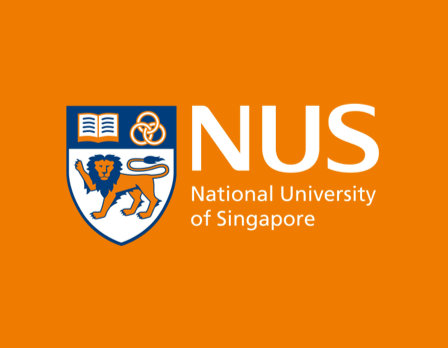An integral part of one of the World’s Best Universities 2020 according to THE, the National University of Singapore (NUS) Engineering Graduate School is in a league of its own.
Equipping all students with the necessary skills and mindset needed to meet the challenges and opportunities of Industry 4.0, NUS Engineering accelerates past employer’s expectations by providing a new generation of technology leaders who can offer holistic solutions to complex problems at the intersection of technology and society.
Exuding experiential learning techniques so students get to experience the excitement of engineering from their very first semester, by graduation, all learners are ready to immerse themselves in real-world engineering sectors.
From NUS Engineering Graduate School to undeniable career success, every graduate programme grants valuable insight into varied industries.
With the Graduate (Research-Based) Programmes, you’ll receive training in a particular subject area through independent investigation, study and experimental work, culminating in the submission of a thesis on the research undertaken.
In the Graduate (Coursework-based) Programmes, both part-time and full-time options are available. These are designed for university graduates who wish to advance their knowledge, technical depth and careers in their chosen engineering domain.

Source: National University of Singapore, Faculty of Engineering
NUS Engineering also provides a range of collaborative programmes and focused graduate certificates for students looking to pursue a particular area of specialisation, all of which are included in the NUS Engineering brochure.
The NUS Engineering Graduate experience
Exposing how NUS Engineering helps shape graduate career success, the school’s alumni chose to share their experiences and explain how NUS encouraged them to tackle global challenges through research and innovation.
Pursuing the double-postgraduate degree French – NUS Double Degree Programme (FDDP), alumnus Antoine Gaudin from France chose to study in Singapore due to its “dynamism” and “occidental way of life”, which eased his study abroad integration process and willed him to discover the country’s rich cultural diversity.
Paired with practical skill development and career-based experiences throughout his Master’s degree, there were multiple avenues for Antoine to explore before proceeding with future roles.
“Over my time in NUS, I had the chance to work part-time in maritime policy advice, with environmental economics. I was comparing the effects of various carbon pricing policies on international Maritime transportation. It was research-based, under MPA (Maritime Port Authority) grants.

Source: National University of Singapore, Faculty of Engineering
“I am grateful to have experienced this work as it provided valuable knowledge for my future experience and increased real-world awareness for my studies at NUS,” he notes.
After graduating, Antoine chose to stay in Singapore, beside NUS at the Science Park.
“In my company, DNV GL, I specialise in policy and market analysis, renewable energy and electricity market design. We spend time advising policymakers, electricity grids owners or private businesses to modernise their systems and help the increase of renewable energy,” Antoine affirms.
Another alumnus who benefited from their time at NUS Engineering is Zhao Tong, a Master of Science (Electrical Engineering) degree holder from China.
Since graduating, Zhao joined CST South East Asia, Singapore as an Application Engineer and is now a solution consultant for SIMULIA APS, Dassault Systèmes, focusing on 3D EM simulation solutions.
Trusted to support and train engineers from multiple industries, especially high-tech, to simulate their design correctly and efficiently, Zhao required strong theoretical foundations and excellent practical skills to drive projects forward.

Source: National University of Singapore, Faculty of Engineering
By channelling these from his NUS Engineering experiences, he has been able to achieve outstanding performance in industry practice and has since been invited by NUS professors to give talks on simulation for Master’s students.
“When I look back to my choices of taking this graduate programme, it’s clear to see that this degree has been a real career booster to me. It levelled up my technical knowledge and confidence in working on the latest products and technologies with any electronics companies, even with people from cross-industries.
“In addition, the industry connections from NUS professors are a golden network for students, I found my jobs through Professors’ referral and networks,” Zhao explains.
Acknowledging that the high-tech industry is in constant evolution, the same as many other industries, Zhao points out that startups and industry leaders are rethinking everything, from 5G to IoT smart devices, using scientific knowledge ranging from broadband electromagnetics to multi-physics.
As such, the time is now to upskill your knowledge and further your understanding of future engineering practices.
“From an engineering career point of view, it is critical for everyone to understand his/her own interests, strengths and industry-related skills – and prospective students can still evaluate and decide their direction while studying. That’s why NUS offers a wide choice of graduate programmes, which are adaptive, dynamic and up-to-date in depth.

Source: National University of Singapore, Faculty of Engineering
“Throughout the interaction with many NUS Engineering alumni, I am thrilled to see that graduates can become key players in developing products of the future, tackling unseen technical problems and driving industry renaissance together,” Zhao concludes.
And one of those NUS graduates that became a key player in the engineering industry is senior alumnus See Hee Ong.
A successful Associate Director in the Environmental, Health and Safety (EHS) leadership sector, See Hee gained in-depth knowledge from his Master of Science (Safety, Health and Environmental Technology) programme, such as empirical formulas and principles behind technical and engineering calculations.
“As far as my personal life is concerned, the course helped me tremendously as I was offered the adjunct associate professor position at NUS to teach in this course soon after I graduated.
“Teaching in this course (several modules) gave me the opportunity to learn how the students from a wide variety of background and industry experience perceive certain issues and challenges they were facing or potentially would face. This helped me to share my actual hands-on experience,” he shares.
A springboard for career success, it’s evident that NUS Engineering Graduate School provides a plethora of programmes to propel your talents into the future.
So, if these real-world student stories have sparked your interests and you’re ready to make progress of your own, consider NUS Engineering today.
Follow NUS Engineering on Facebook, YouTube and Instagram
Liked this? Then you’ll love these…
Electronic & electrical engineering: APAC’s spark of innovation
Why Asia is the top choice for your postgraduate engineering study











